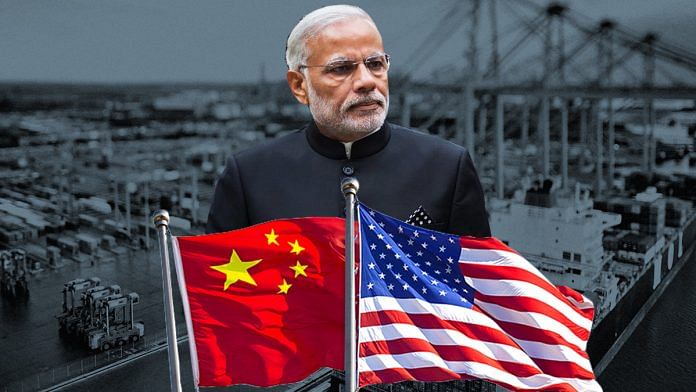The Supreme Court’s stamp of approval on the Narendra Modi government’s decision of 5 August 2019 to abrogate Article 370 of the Constitution has once and for all put the lid on one of the most contentious issues that anguished the Indian polity since the tragic Partition and Independence. The Article, which appeared under the Temporary Articles category, remained for so long that it became a permanent feature de-facto. Not only politics of Jammu and Kashmir, which was at the centre of this Article, but the national political narrative also revolved around this highly polarising piece of legislation.
Article 370 was not part of the accession document that Maharaja Hari Singh, ruler of Jammu & Kashmir (and other areas that he added in his own handwriting) signed. He specifically mentioned that he was the ruler (deshadhipati) of Tibet. It was the same document that all the rulers and heads of 550-odd riyasats had signed.
An old promise has been kept
Although it was a temporary provision that had begun to become infructuous over the years, Article 370 turned out to be a polarising factor in J&K, influencing the socio-political landscape for more than seven decades. The perceived notion that J&K and its people are different from the rest of the country because of the “special status” conferred by Article 370 fuelled the separatist elements in the state’s politics. Political leaders of all parties in J&K were members of the Union cabinet in one or the other coalition and yet preferred to treat Article 370 as off limits for the Union government to even comment upon, much less remove it.
Syama Prasad Mookerjee, the founder of the erstwhile Bharatiya Jan Sangh (BJS), spearheaded the agitation to abrogate this Article. This became one of the core agenda of the BJS followed by the BJP making it an election promise since 1980 to the extent of canvassing for “370 seats to abrogate 370”. Finally, during its second term in 2019, the Modi government redeemed the promise its leaders had made. The Supreme Court’s stamp of approval now opens the doors for several possibilities.
Union Home Minister Amit Shah had assured Parliament that the statehood would be restored and elections will be held as soon as the situation has become conducive. Many ground reports have indicated that the situation is peaceful and the state is free from agitations and major terror attacks. Sooner than later, elections must be held and statehood restored. The decision of declaring Ladakh a Union Territory was part of the BJP’s election promise and in the best interests of the region, its economic development and preserving its unique identity.
The unprecedented terror attacks, insurgency from across the border and massacre of Hindus leading to their exodus, reducing them to be displaced persons (DP) in their own land, is a scar on the nation’s psyche and very hard to heal. Settling them safely back to their hearths and home should be the next priority of the governments, both in the state and at the Centre.
Pakistan shows it won’t learn
Pakistan’s reaction is more or less on the expected lines, rejecting the Supreme Court’s verdict and calling the judicial endorsement of India’s “unilateral and illegal actions…a travesty of justice”. The irony of Pakistan talking about justice apart, Islamabad is peddling the same old story of “Kashmir is an international issue” and the final decision rests on the wishes of the people of Kashmir. Not very surprisingly, its caretaker, Foreign Minister Jalil Abbas Jilani, has even warned that ‘Kashmir will react like Gaza’ and plans to call a meeting of stakeholders to determine the future course of action, probably implying terror strikes.
The humiliating defeat in 1965 and the liberation of Bangladesh in 1971 resulted in revenge attacks by Islamabad in keeping with then-prime minister Zulfikar Ali Bhutto’s rhetoric of “thousand years war” and Pakistan Army’s strategy of “bleeding India through a thousand cuts”. J&K bore the brunt of Pakistan’s terror attacks the most. Pakistan-Occupied Kashmir (POK) became the training ground for mercenaries and launchpad of terrorism. POK also became the entry point for China in its quest for a safe and strategic port in the Indian Ocean. Through the China-Pakistan Economic Corridor (CPEC), Beijing established itself firmly in POK, creating a permanent security threat to India.
A combination of several geopolitical happenings, tacit support of China, and myopic regional policies of the US not only resulted in a major setback for New Delhi but elevated Pakistan as a terror state, which now has become a problem for both these fair-weather friends of Islamabad.
What US, China must realise
It is advantage India now as an economically bankrupt Pakistan is not of much use to either Beijing or Washington. Besides, POK happens to be India’s gateway to Central Asia and other trade routes that will ultimately link Asia to the Middle East, Europe, and beyond.
The Union Home Minister has declared in the House that 24 seats in the J&K assembly are reserved for representatives of POK. These members should be nominated until elections are held there. With allocation of funds for development, these representatives of POK can turn the tide in favour of India. Pakistan’s illegal grip over this area is anyway loosening. Frequent anti-Islamabad and anti-army agitations have sent alarm signals to Beijing, which is compelled to put some of the CPEC projects on hold.
It is time for both Beijing and Washington to realise the futility of supporting a failed state, which is thriving only on terrorism as a marketable commodity.
India’s legitimate claim over POK should be articulated by New Delhi after restoring the assembly in J&K and holding elections.
Seshadri Chari is the former editor of ‘Organiser’. He tweets @seshadrichari. Views are personal.
(Edited by Prashant)



